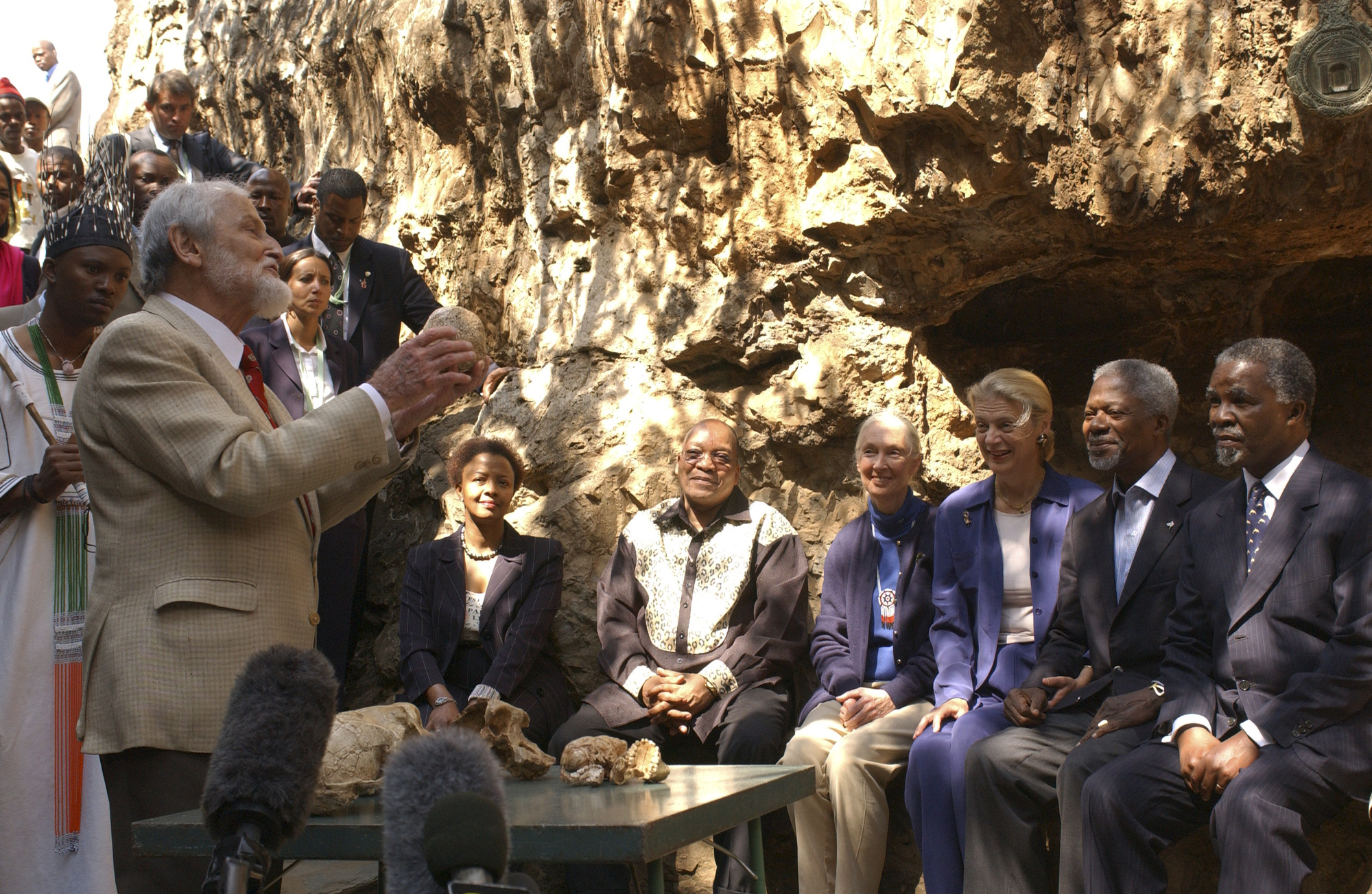Annan and Africa
While Kofi Annan had grown up in Africa, he had lived most of his adult life either in Geneva or in the United States. Therefore, he was not well known among Africans and at first the Africans did not have much empathy for him. But as Ibrahim Gambari of Nigeria, explains, "they felt he understood them instinctively and that he cared really about Africa. . . . So I think in that sense his sympathy with Africa grew . . . looking over the years you also saw that the man grew in the job; there's no doubt about it." Gambari explains that in that regard only the African Kofi Annan could get away with criticizing African leaders and holding them accountable, as he did in his speech to the Organization of African Unity (OAU) summit when he challenged them to uphold human rights in their respective countries and to embrace democracy, not as a Western imposition, but out of responsibility to their own peoples. In an interview, Kofi explains what prompted him to make the now famous speech in Harare at the OAU summit in 1997:
I think I felt that Africa had reached a stage where it should be able to keep its soldiers and generals in the barracks, and those who were in office, to send them back to the barracks. I was also looking at an evolution in Latin America, where they had been able and in a way were sending their soldiers back to the barracks. The economic and political development in Africa had been distorted because of the number of coup d'etats and the number of people who took part through the barrel of the gun. So, I was trying to encourage them to have a new beginning and really try and make sure that the people who were going to lead were elected by the people and are accountable to the people. When I made that speech, Salim Salim, [Secretary-General of the OAU at the time] . . . . said to me, "Let me tell you, you are the only one who can make such a speech in this room at this time and walk away unlynched."35
What Salim Salim was referring to was that there were a number of military dictators in the room, notably Robert Mugabe, because the meeting took place in Harare, Zimbabwe. As we know from Kofi's nickname in school "Annan Demo" he had grown up listening to discussions of politics at home and at school of African independence and democracy. These early impressions stayed with Annan and he felt because he had grown up with these ideas, he would be able, by rights, to encourage African leaders to take a look at Africa through this lens. Annan talks about his role as an African at an off-the-cuff question and answer encounter:
I think being a Ghanaian and an African, as Secretary-General it has had an impact and raised the profile of the continent, and from the reactions I get from black peoples everywhere and I think, I hope it has inspired some of them to work harder, and to reach out and live their dreams. I am often reminded of something that Eleanor Roosevelt said, advising a group of young women, but I think it also applies to other minority situations, she said, "No one can make you feel inferior, unless you give your consent." And I hope what I have achieved and done is an inspiration for others.36
Annan traveled frequently to Africa, attending conferences and working with leaders at side meetings as well as directly in their countries. Because most peacekeeping operations take place in Africa, Annan spent much of his time working to enhance conflict resolution efforts that would inevitably arise on a day-to-day basis. In attempting to prevent the return to conflict, he met with the leaders of Nigeria and Cameroon to establish a boundary commission to peacefully oversee the demarcation of the border between the two countries once a decision was announced by the International Court of Justice (ICJ). In another case between Namibia and Botswana, Annan encouraged the two countries to resolve their dispute over some islands in the Caprivi River dividing the two neighbors by taking the issue to the ICJ. He then made available to them funds so they could have enough resources to support their arguments before the Court and ultimately end the fighting through peaceful means. When allegations arose about UN humanitarian workers and peacekeepers in African missions abusing refugees or other vulnerable persons, Annan called for an investigation to uncover the truth about what was going on. The report was very blunt and honest about the problem and the UN set in motion new policies to address the problem. Much of Annan's focus on combating poverty and forming the Millennium Development Goals applied to enhancing development worldwide, but arose out of his sense of concern for the African continent. So, while many Africans did not really know him when he took office, he did more than any other Secretary-General to bring the needs of Africans to the world stage.
Notes:
35. Interview with former UN Secretary-General Kofi Annan by Jean Krasno, on Friday, March 21, 2008, in New York City.
36. Question and answer session with the Secretary-General following the Cyril Foster Lecture at Oxford University on June 19, 2001, in The Collected Papers of Secretary-General Kofi Annan: UN Secretary-General, 1997-2006, by Jean Krasno (editor), (Boulder, CO: Lynne Rienner Publishers, 2012), pages 1528-1532.
